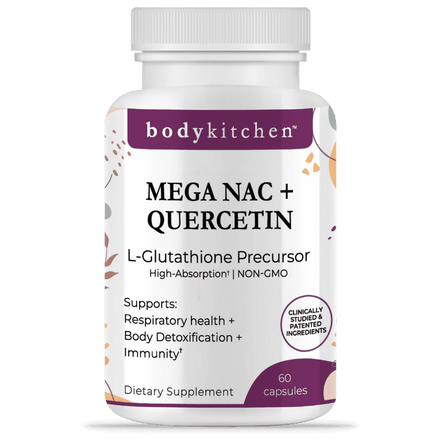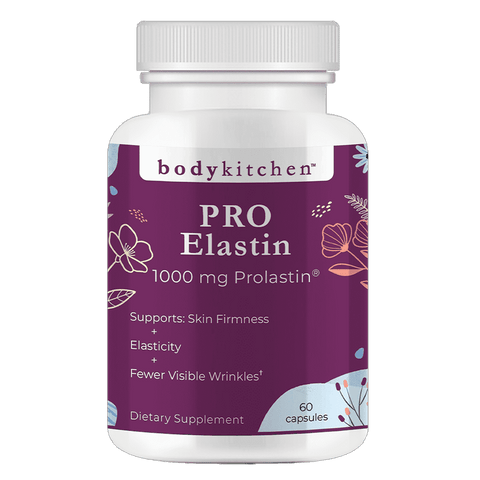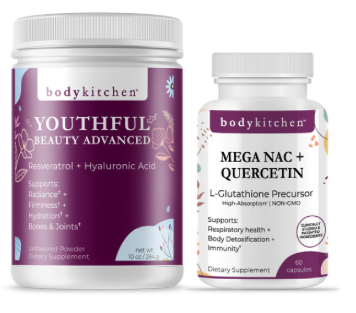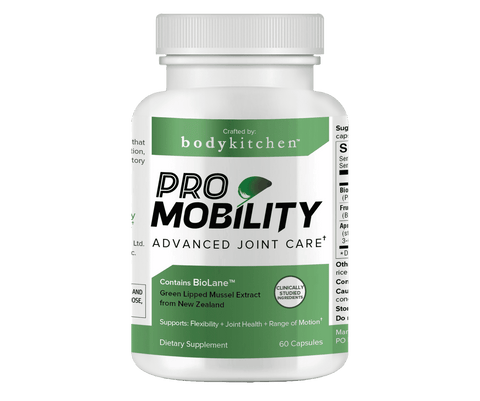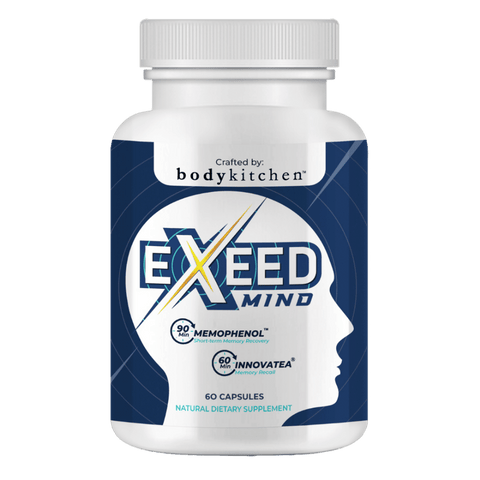Oxidative Stress, Quercetin, and NAC Benefits
Antioxidants come up a lot in articles about nutrition and dietary supplements. You've likely read that antioxidant supplements are used to combat oxidative stress. But what does that term even mean, and why is it important to try and minimize it? Read on to get the facts about oxidative stress supplements and to discover which ones may help you boost your body's defenses.
Oxidative Stress Definition: What Is Oxidative Stress?
Oxidative stress is the term for a state in which your body is suffering damage due to free radicals. These reactive particles continuously act on body cells. When your body's natural defense mechanisms fail to counteract them, oxidative stress occurs.
What Causes Oxidative Stress?
The human body naturally produces some free radicals. They're a natural part of the aging process. Unfortunately, free radicals from other sources overwhelm the body and lead to oxidative stress. Some common sources of free radicals include:
- Ultraviolet radiation
- Air pollution
- Toxic chemicals
- Cigarette smoke
What Are Some Oxidative Stress Symptoms?
Oxidative stress causes the following symptoms:
- Fatigue
- Fine lines and wrinkles on the skin
- Memory problems
- Joint and muscle pain
- Gray hair
- Worsening eyesight
- Headaches
- Noise sensitivity
- Immune system dysfunctions
- Problems regulating blood sugar levels
What Are Long-Term Effects of Oxidative Stress?
Studies have found that oxidative stress can lead to:
- Chronic inflammation. The link between oxidative stress and inflammation has been widely studied. Continuous free radical damage can lead to concentrated or widespread inflammation, which can cause unpleasant symptoms and increase the risk of serious health complications.
- Nervous system problems. Oxidative stress is believed to contribute to Alzheimer's disease and dementia
- Cardiovascular disease. Long-term oxidative stress can worsen clogged arteries, increasing the risk of heart attack and stroke
- Autoimmune disorders. Oxidative stress is thought to stimulate immune system function that leads the body to attack healthy tissues
- Eye disorders. Cataracts and age-related macular degeneration may be prompted in part by free radicals
- Type 2 diabetes. If the body becomes unable to regulate blood sugar levels due to oxidative stress, you may develop the condition
- Cancer. Numerous studies have found that damage to cellular DNA by oxidative stress triggers the growth of cancerous tumors
- Genetic degenerative diseases. Oxidative stress may help drive the progressively worsening symptoms of conditions like Parkinson's and Huntington's disease
What Are Antioxidants and How Do They Help with Oxidative Stress?
Antioxidants are substances that break down free radicals into harmless substances that your body can easily eliminate. Glutathione serves as the body's master antioxidant and, in optimal conditions, can help to keep oxidative stress in check, so the aging process occurs naturally.
Unfortunately, with the addition of free radicals from the environment, the antioxidants naturally present in your body may not be enough protection. Increasing your intake of antioxidants through diet and supplements may give you an extra supply of these protective nutrients to lower your risk of oxidative stress and its potential health complications.
Quercetin Supplement Benefits
Quercetin is an antioxidant found in vegetables, fruits, and grains. It's also available in supplement form. Studies have found that taking a quercetin supplement may:
- Help regulate the body's inflammatory response
- Reduce allergy symptoms by stimulating the immune system
- Lower the likelihood of some types of cancer by stopping or slowing excessive cell growth
- Make you less likely to develop dementia and Alzheimer's by fighting oxidative damage to brain cells
- Support healthy blood pressure and blood sugar levels
- Support healthy aging
- Enhance performance during exercise
NAC Supplement Benefits
N-acetyl cysteine or NAC is a form of the amino acid cysteine available in supplement form. When manufacturing the master antioxidant glutathione, your body binds NAC with glutamine and glycine amino acids. Research shows that increasing the amount of the amino acid with an NAC supplement may help support glutathione production. In addition, NAC supplements may:
- Help control flare-ups of chronic obstructive pulmonary disorder (COPD) by fighting inflammation
- Improve blood sugar levels in people with diabetes
- Promote normal blood sugar levels by fighting oxidative stress' effects on the cardiovascular system
- Help regulate ovulation in women with polycystic ovarian syndrome (PCOS)
- Support the actions of prescription medications to reduce depression symptoms in people with bipolar disorder
What Is the Best Quercetin and NAC Dosage?
The optimal dosage of quercetin and NAC depends on your age, weight, sex, and health goals. Body Kitchen Mega NAC + Quercetin provides 600 milligrams of each per serving, an optimal dose for many people. The supplement also features Bioperine black pepper extract to help support absorption so that your body can better utilize the key ingredients.
Before taking any dietary supplement, be sure to talk to your health care provider. NAC and quercetin are generally safe for most people. However, if you have a medical condition or take a prescription medication, the supplements may not be right for you. Your doctor can also help you determine which dose of these oxidative stress supplements is best for your needs.
TESTIMONIALS
"I have been having respiratory issues over a year now. Drs cannot figure out what’s going on. I started taking this supplement about a week ago and I swear I can tell a difference. It truly helps break up the mucus, I feel more focused and less anxious. You have a lifetime customer. Thank you 🙏🏾"- Azziza
